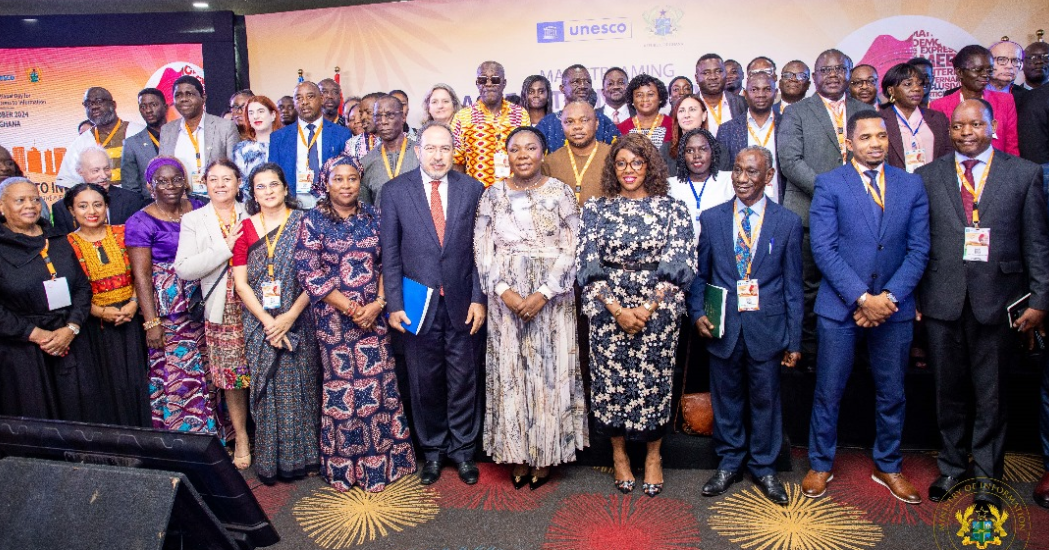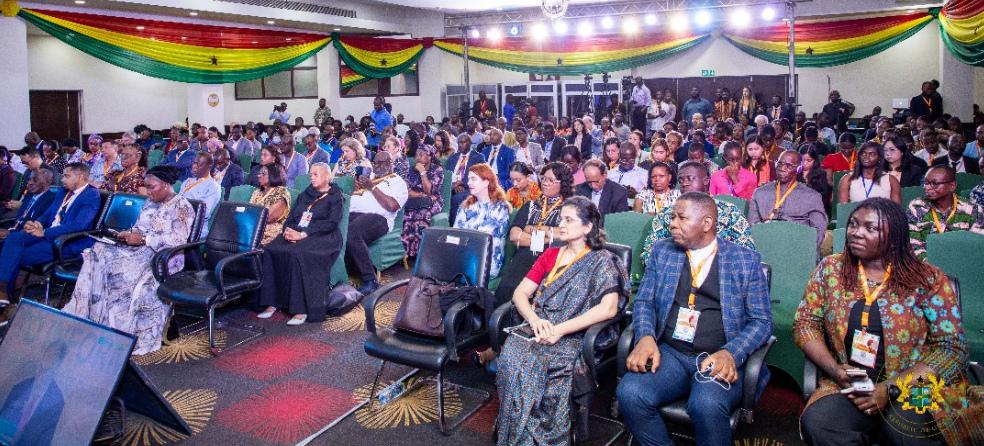- Login to ASPnet | Ghana Commission for UNESCO | Government Agency Responsible for the coordination of Ghana's contributions to and presence at UNESCO
IDUAI Global Conference: Participants recognise access to information as foundation for equitable society

By Godwill Arthur- Mensah (GNA)
Accra, Oct. 03, GNA–Participants at the International Day for Universal Access to Information (IDUAI) conferenced, held in Accra, Ghana, from October 1-2, 2024, have recognised access to information as a foundation for a just, informed and equitable society in the digital era.
The two-day global conference, first-ever held in Africa, in Ghana, was on the theme: “Mainstreaming Access to Information and Participation in the Public Sector. “
The landmark event, organised by the United Nations Education, Scientific and Cultural Organisation (UNESCO) and the Government of Ghana, underscored the critical role of access to data, including statistics, datasets, reports, research findings and any data collected by public bodies and other relevant private institutions, in facilitating access to information and upholding universal access to information.
The participants recognised that the foundation of a just, informed, and equitable society in digital times rests particularly on the availability and transparency of data.
They acknowledged that, as a crucial pillar of information, data forms an essential part of the right to information, which is vital for democracy and essential to promote more transparent, accountable, efficient, and responsive institutions.
They noted that as part of the right to information, access to data entails that public data should be openly available, easily discoverable, accessible, shared, and disseminated by anyone for any purpose within the frame of international human rights law.
They acknowledged that data harnessing was increasingly shaping the daily lives of the people and impacting global technological, socioeconomic, and political dynamics.

They believed that information provides insights to inform evidence-based policies and interventions, and enable governments, citizens, researchers, civil society, and private sector organizations to make better-informed decisions, especially during elections, and promote public participation and strengthen trust in public institutions.
The participants reaffirmed that open data initiatives and access to data for the public good could foster innovation, encourage collaboration, and empower the public to engage actively in governance and decision-making processes where authority is exercised in governments.
They encompassed the mechanisms, policies, and practices that ensure accountability and could also support the design and evaluation of progress towards achieving the Sustainable Development Goals.
They recognized that media practitioners utilize data to inform and guide the public on important matters affecting public interest.
They acknowledged the critical role of timely data access in addressing global challenges such as pandemics, climate change, environmental crises, and conflicts.
They were of the belief that respecting data collection, access, and dissemination enables individuals to exercise their rights, fully participate in society and hold institutions accountable.
They indicated that access to information also empowered public watchdogs to monitor public and private actors, exposing wrongdoing, and ensuring transparency and accountability across both public and private sectors.
